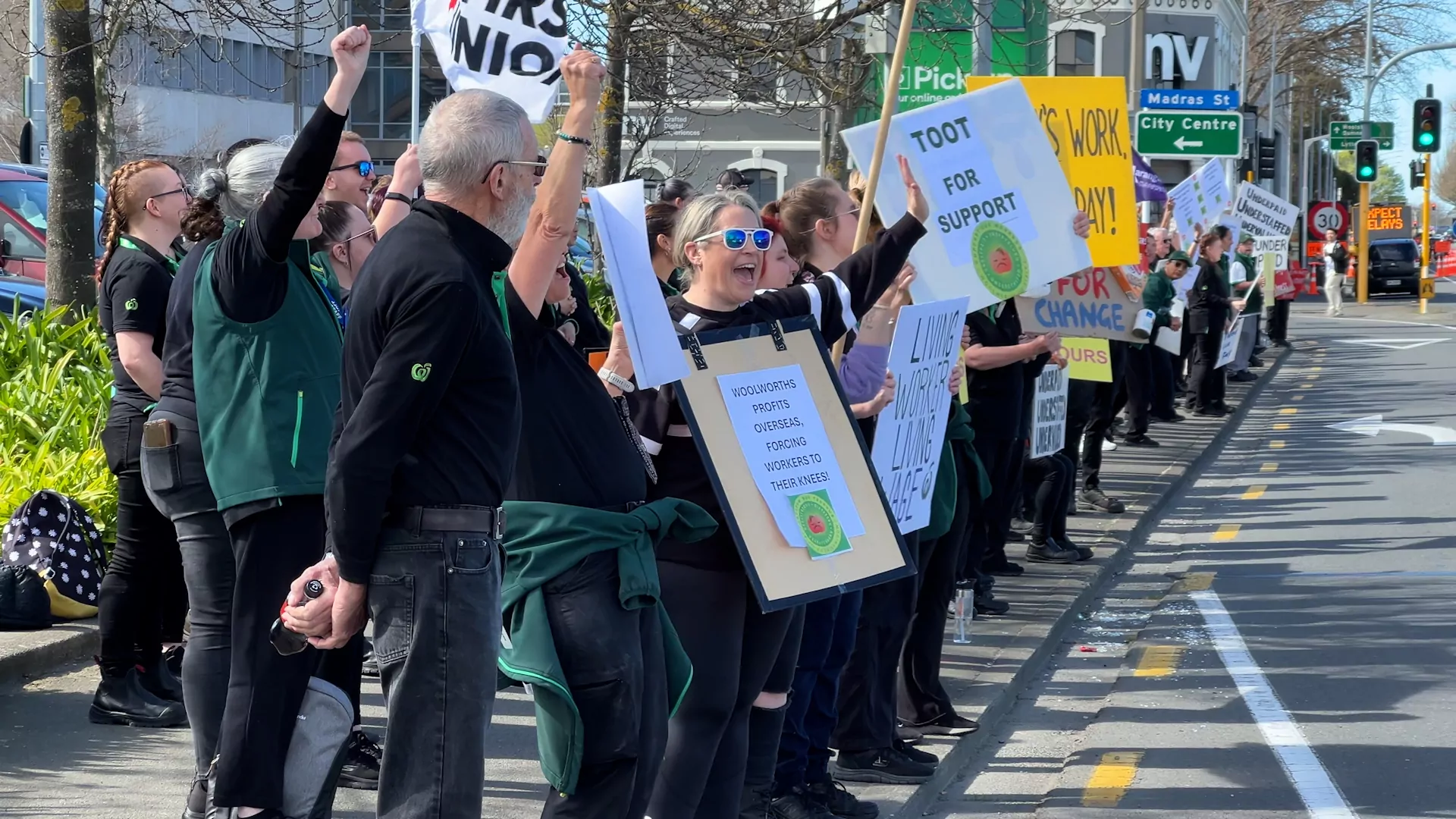Thousands of Woolworths workers who walked off the job yesterday as part of a nationwide strike were met with suspension notices from the supermarket giant.
The two-hour walkout, which took place at midday, saw employees rally in front of over 40 stores across the country, from the Far North to Invercargill.
Rudd Hughes, National Secretary for Retail and Finance at FIRST Union, dismissed the suspension notices as a “pointless intimidation tactic,” calling it “bully-boy behaviour” during a legal strike.
“It’s a farce, given that the strike was ending in two hours and the notices were invalid,” Hughes said.
“Workers had already suspended themselves – we informed the company on Monday. Woolworths did this to intimidate, and it didn’t work.”

Photo: Chris Lynch Media
The strike action, which focused on demands for a living wage and safer staffing levels, drew public support across the country.
However, Hughes criticised Woolworths for making inaccurate statements to the media about bargaining and pay, vowing to address the issue in resumed negotiations with the company today (Wednesday).
“Woolworths’ claims about pay increases are misleading,” Hughes said. “Does anyone really believe that thousands of workers would strike and give up two hours’ pay if a 10% wage increase was on the table?”
Hughes argued that Woolworths is not struggling financially, referencing the Commerce Commission’s recent Annual Grocery Report, which pointed to the company’s strong position in a $25 billion grocery duopoly. He also highlighted that the company is midway through a $400 million rebranding project while seeking to cut labour costs over the next two years.
“They’re no longer a market leader on pay and certainly shouldn’t be making those claims while threatening striking workers during a legal industrial action,” Hughes said.
The union stressed that yesterday’s walkout, organised on just three days’ notice, showed how seriously workers take the need for a living wage and safer conditions in stores. Woolworths employees remain on a social media and media strike, refusing to comply with restrictions on public communication about their work.









